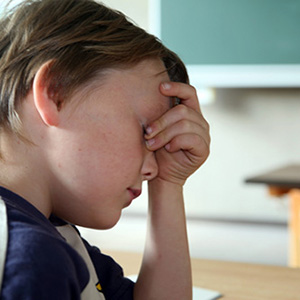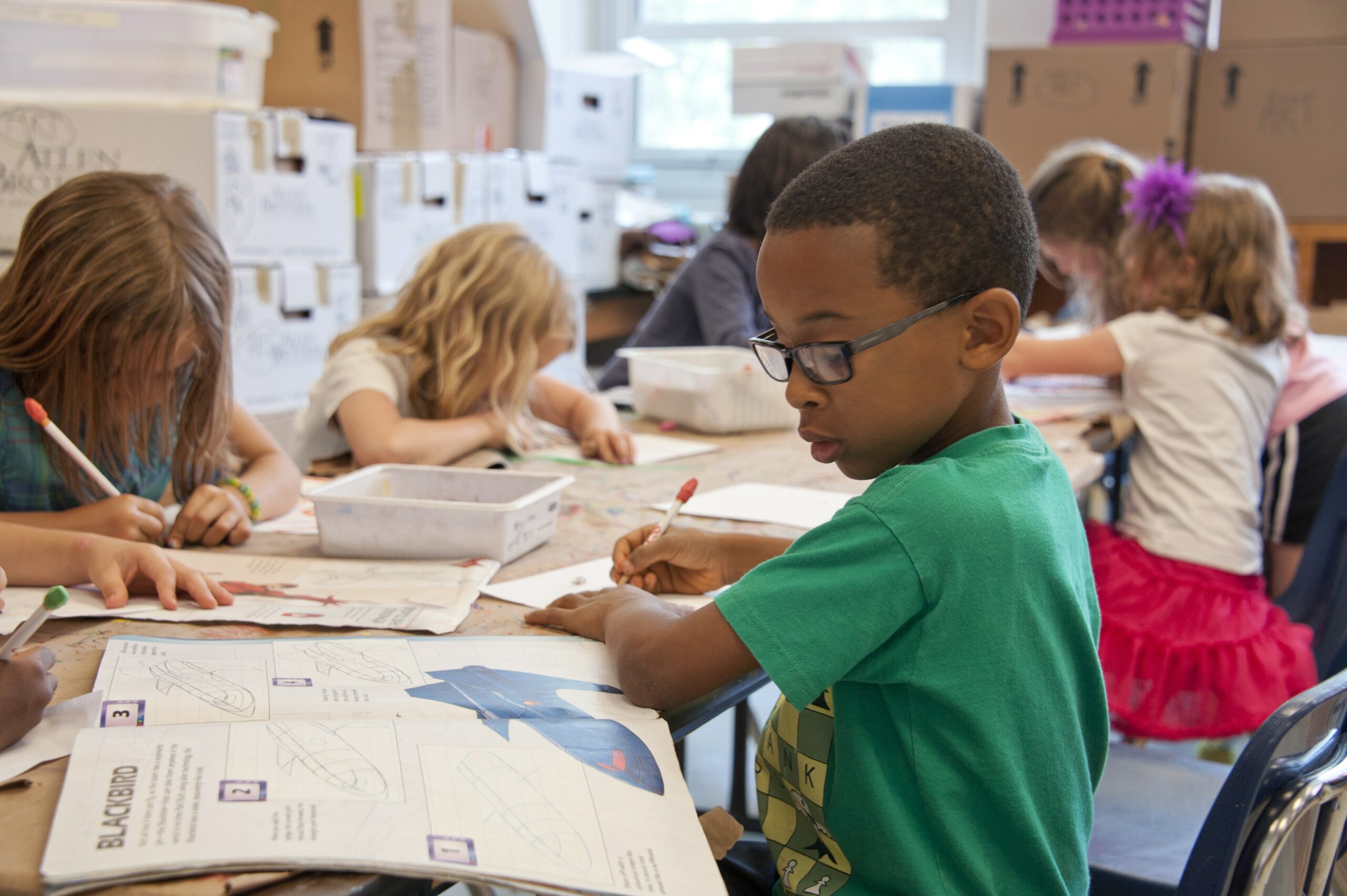Stress is a normal, unavoidable part of life. It’s actually good for a child to experience small amounts of manageable stress, such as frustration with learning a new skill, dealing with being late to a birthday party due to traffic, or worrying about saying the wrong line in a school play. Learning to deal with the minors stressors of life as a child, when a parent is around to teach them healthy coping skills, will support them as they grow and face more difficult life challenges.
Unfortunately however, when a child experiences frequent, chronic, or overwhelming stress, survival mode becomes the norm and the brain and body learn to stay in a stressed state. These chronic stress patterns can hamper healthy brain development, leading to a brain imbalance where the emotional part of the brain becomes overdeveloped and the thinking part of the brain remains underdeveloped. This brain imbalance can create significant mental and emotional issues such as agitation, anxiety, impulsiveness, hyperactivity, an inability to focus, lacking empathy, low emotional control, poor decision-making, and weak problem-solving abilities. Chronic stress can also cause a host of minor, and sometimes significant, physical health problems, such as an impaired immune system, slowed growth, aches and pains, and poor digestion.
How can you tell if a child is over-stressed? Look for these physical and emotional child stress symptoms:
Physical Child Stress Symptoms:
- Stomachaches
- Frequent headaches
- Acne
- Dizziness
- Bowel problems
- Bedwetting
- Change in appetite or food cravings
- Frequent or lengthy illnesses
Emotional Child Stress Symptoms:
- Clingy
- Change in quality of school work
- New compulsive habits such as hair twirling, nose picking, hand washing, or thumb sucking
- Too much or too little sleep
- Mood swings
- They begin lying or become quiet or secretive
- Change in eating habits
- Angry or aggressive behavior
If there is any notable regression or worrisome change in a child’s behavior and/or decline in physical health, it is important to step back and consider whether too much stress is the root cause.
How Can You Help a Stressed Child?
- First and foremost, spend extra time listening. Your careful, quiet listening helps a child feel heard and validated.
- Hold space for big emotions. This means being a compassionate, nonjudgmental witness while a child expresses him- or herself. Encourage the child to verbalize feelings, even draw them if they like to draw.
- Set limits, such as, “When you’re angry, don’t touch anyone or anything.”
- Suggest they move to get some negative energy out. “Would it help to run up and down the hall for a few minutes?”
- Instead of interjecting an interpretation or drawing your own conclusions, support the child’s developing ability to analyze and solve problems by reflecting what you’ve heard and asking exploratory questions.
- Remember, questions that only require a “yes” or “no” answer can stop conversations in their tracks. And “Why” questions can feel pointed or punitive instead of caring.
- Ask open-ended questions that inspire sharing and reflection, such as, “How are you feeling?” or “What was your day like today?” Or simply invite them to “Tell me more.”
- Reflect back what you heard, such as, “It sounds like you had a very frustrating time and got hurt by your friends today.”
- Notice how your child is feeling and reflect on the emotions expressed, “It sounds/looks like you’re really angry (sad, hurt, worried, etc.).”
- Ask for thoughts about why that happened and ideas for possible solutions. Let them know you can offer help if they want it.
Your listening and caring reflection can encourage children to move through stress reactions and painful emotions, maybe not immediately, but much more quickly than if they don’t feel heard and cared for. By listening to them, asking them what they need, what they want to happen, what they see as solutions, and whether they want your help, you are also providing a supportive connection, teaching children how to manage stress, and promoting healthy brain development.
Sometimes all a child needs is a hug, your compassionate eyes, and/or a verbal acknowledgement that he/ she is experiencing a stressful moment or challenging times. If you or your child/student are really struggling and can’t seem to get on top of the stress, you may need to find a counselor who can help. Having a child write their Imagine story will support them immensely, and it can be a tool to use for a lifetime (you can write one too). Giving a child tools to support their mental health is equally as important as watching over their physical health. A healthy mind, heart, and body will bring joy and positivity to them, you, and the world.
To learn more about stress and trauma in kids and teens you can read The Imagine Project: Empowering Kids to Rise Above Drama, Trauma, and Stress (Yampa Valley Publishing, 2017)
Love,
Dianne
Dianne Maroney is a Clinical Nurse Specialist in Psychiatric/Mental Health Nursing. She is the founder of The Imagine Project, Inc., a nonprofit organization that helps kids, teens, and adults overcome challenging life circumstances through expressive writing. Dianne is a thought leader in the area of stress and trauma in children. Her simple, yet profound 7-step writing tool, now used by schools across the US, gives kids and teens the opportunity to rewrite a challenging personal story and Imagine new possibilities in its place.





